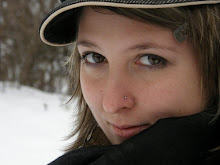Kampala Living...
I’ve now been in Kampala for what, a week and a half? Things are becoming increasingly familiar here (as indeed, they ought)… and all is well. I thought perhaps today I would share with you some of my observations and thoughts about the city itself. This weekend I will actually be leaving early Friday morning for a “rural visit,” and will be sure to tell you about that experience later, as with yesterday’s expedition to Ssezzibwa Falls and the Place of the Martyrs.
Here in Kampala you see the grand Sheraton Hotel and the Stanbic Bank from all around the city. Yet, in their shadows are the dirty, garbage strewn streets; the beggared children crying “Sa!” (Sir); the crazed boda-boda’s (motor-bikes with everything on them from people to people with children to people with chickens, goats, or computers), and the smells and billows of pollution.
“God is Good,” and “God is Able” are written everywhere on buildings and autos and signs. But do not forget—and indeed, you cannot—the great mosque which now towers sas the city’s newest landmark. We judge direction by it.
And still all across the city you see the smiling face; the courageous brow; the student determined against all odds (and there are many) to succeed; the vendor likewise to survive another day, or feed the family a while more. And you hear the shouts and laughter of the youth playing on the futbal fields ever plentiful around the city, and see the best-dressed throngs walking through the jumble to church, then back again—even up five hours later!
The laundry on the lines; the taxi parks (for the matatu’s—beleaguered, overstuffed vans serving as public transportation alongside the boda-boda’s)…You see the women bent over their washing, or walking gracefully under a full head-load… Men staggering through the market, backs bent under the weight of oversized sacks… And then still there are the birds and the warm, dry breeze and the beautiful sunrises and the palm trees and hibiscus and bougainvillea plants in full flower.
And I wonder… who are we to determine how mankind should live? To demand development as if our society really were the better beyond doubt? It is not God I question—not why He should allow this, but rather those of us who come in the name of holy change.
It fascinates me to look out at this city. “It is as if we were hit by a missile,” a student I met and interviewed at Makerere University told me Sunday. The modernization is not a problem in the West because the two evolved together. Now it comes here, and as with Christianity, must learn to separate itself from mere cultural demands and influences and establish it’s own unique identity or “label” here—to possess it, so to speak. Can this be done? I want to know. But who can really say as yet?
Given the right amount of time, and resources and pressure, yes, eventually. But what will the equation look like in that eventuality? Chemistry and maths are not infallible, no more so those working them out.
It is a beautiful place here, and I am glad to stay. Glad to know “Africa” in these terms. Glad for this look and taste of it which so few find while still in university, too. Already I find myself the richer for being here, and for allowing myself to open up to its gifts. I know when I leave I will miss Kampala; maybe for what it is (time will tell), but truly for what it will be to me; be for me.
I just finished reading The River Between through for the second time here, and while I found the book as a whole one of the most beautiful and poignant works of art I have ever read, I found one particular passage absolutely riveting. I quote,
“For Waiyaki knew that not all the ways of the white man were bad. Even his religion was not essentially bad. Some good, some truth shone through it. But te religion, the faith, needed washing, cleaning away all the dirt, leaving only the eternal. And that eternal that was the truth had to be reconciled to the traditions of the people. A people’s traditions could not be swept away overnight. That way lay disintegration. Such a tribe would have no roots, for a people’s roots were in their traditions going back to the past, the very beginning, Gikuyu and Mumbi. A religion that took no count of people’s way of life, was useless. It would not satisfy. It would not be a living experience, a source of life and vitality. It would only maim a man’s soul, making him fanatically cling to whatever promised security, otherwise he would be lost.”
Beautifully expressed, I think.


1 Comments:
It always amazes me to notice the things that catch your eye, and how lovingly you communicate every aspect of your surroundings. I honestly have to ask myself, "would I be as observant, or like so many others would I be numb to the apparent and simple beauty that lies everywhere within my scope?"
I love the quote. It's very personal and very convicting.
Post a Comment
<< Home